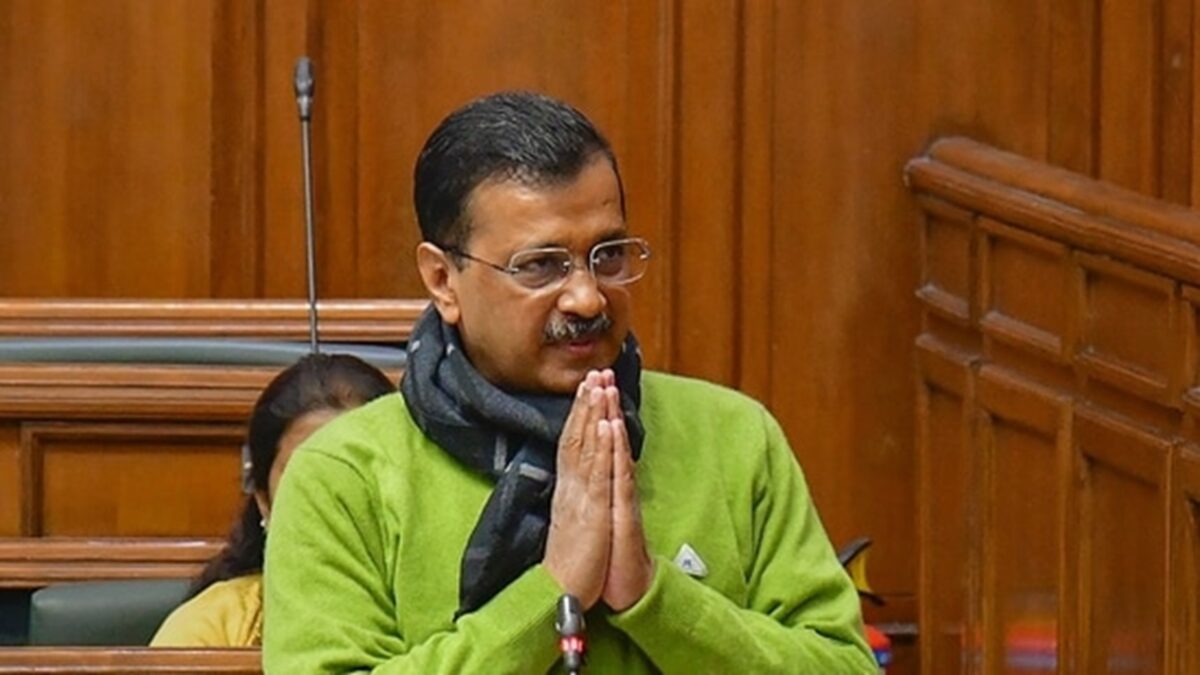Rouse Avenue Court in Delhi dismissed Arvind Kejriwal’s bid to extend his provisional bail due to medical reasons today. For the time being, the Delhi Chief Minister will stay in Tihar Jail in Delhi.
The Supreme Court granted interim bail to the leader of the Aam Aadmi Party on May 10, 40 days after his detention on April 1. The order was valid until June 1, which is the last day of voting for the seven-stage Lok Sabha elections.
Mr. Kejriwal’s legal team had requested bail until July, i.e., until after the election and the formation of the new government. The court stated that pleas to extend respite beyond that date will be heard later.
The Chief Minister eventually turned himself in to Tihar jail officials on Sunday, following a convoluted trip through the nation’s capital. He went to Rajghat to pay his respects to Mahatma Gandhi on Sunday at around three o’clock in the afternoon. After visiting the Hanuman Mandir and the AAP headquarters, he proceeded to the notorious jail in the national capital, where he was released on temporary bail 21 days prior.
A major controversy concerning his diabetes and other medications disrupted his Tihar detention. The Chief Minister and his party accused the authorities of denying him his medications. In response to the allegations, the Enforcement Directorate stated that the meal, which originated from Mr. Kejriwal’s house, was unsuitable for those with diabetes.
Mr. Kejriwal sought an extension of his bail on health grounds on June 1 but got no relief, saying he does not know what people will do to him. He added that they are disciples of Bhagat Singh, going to jail to save the country, and that when power becomes a dictatorship, jail becomes a responsibility.
Arvind Kejriwal Court Advocacy

Senior Attorney N Hariharan, who was representing Kejriwal, stated that the Chief Minister’s physical condition required the plea for interim bail to be moved.
He had said that Kejriwal’s diabetes was made worse by stress and that he needed to engage in campaigning as that was the reason for granting temporary bail.
Kejriwal recently requested a seven-day extension of his interim bail, but the Supreme Court Registry declined to file his case. He was allowed to petition the trial court for standard bail.
Kejriwal and the Aam Aadmi Party are named as defendants in a supplemental charge sheet that the Enforcement Department has filed in the money laundering case. The order of cognizance on the seventh supplemental charge sheet that the investigation filed has been reserved by the court.
Kejriwal’s case challenging his arrest was denied by the Delhi High Court on April 10 after it was noted that the ED had sufficient evidence, supporter comments, and the AAP candidate’s own admission that Kejriwal received funding for the Goa elections.
Manish Sisodia and Sanjay Singh, two prominent AAP members, are also charged in this case. Sisodia is still behind bars, but Singh was recently granted bail by the Supreme Court as a result of an ED concession.
According to the ED, Arvind Kejriwal is the “kingpin” of the Delhi excise scandal and is personally responsible for the misuse of over Rs. 100 crores in illicit gains.
ED contends that the excise policy was put into place as part of a plot to award certain private corporations a 12 percent share of wholesale business profit; however, the Group of Ministers (GoM) minutes do not contain any reference to this requirement.
Additionally, the Central Agency has asserted that Vijay Nair and other individuals conspired with South Group to give distributors huge profit margins.
The agency said that Nair was speaking for Manish Sisodia and Chief Minister Arvind Kejriwal.



